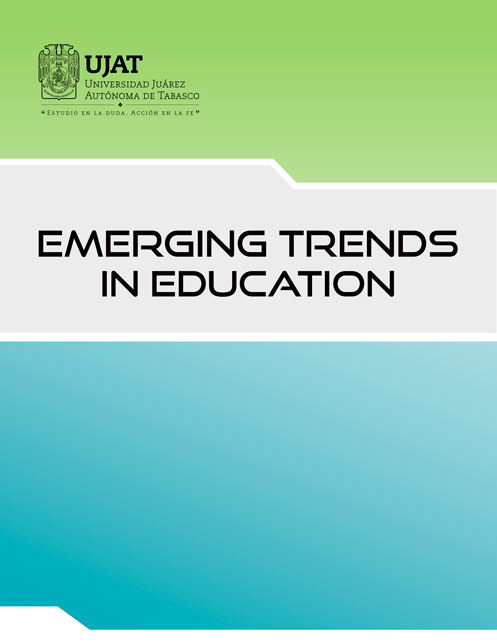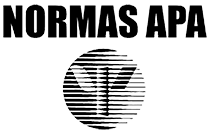Resultado de un curso sobre análisis de noticias en redes sociales y creencias epistemológicas
DOI:
https://doi.org/10.19136/etie.a7n13.6298Palabras clave:
noticias falsas, desinformación, epistemología, redes sociales, educación superiorResumen
Internet es la fuente de información más relevante actualmente; sin embargo, es necesario saber distinguir aquellas noticias cuyo contenido puede ser malicioso, engañoso o falso. Mucho se ha enfatizado sobre las habilidades para analizar noticias falsas desde su estructura, de la mano de la alfabetización mediática, pero poco se ha trabajado sobre variables psicológicas de los participantes que pueden evitar que acepten las noticias falsas sin un análisis crítico. En este sentido, las creencias epistemológicas son una variable por tomar en cuenta. Se analizó el resultado de un curso de análisis de noticias en redes sociales con duración de tres semanas, sobre las creencias epistemológicas, incluyendo también temas sobre sesgos cognitivos y alfabetización mediática. Participaron 58 estudiantes de educación superior y 22 de posgrado. Se constató el cambio en las creencias epistemológicas al aplicar el Cuestionario de Creencias Epistemológicas Específicas a Internet con dos mediciones, pretest y postest, en dos ediciones del curso. Como resultado, se detectaron cambios estadísticamente significativos en dos componentes que favorecieron la perspectiva del participante como constructor de conocimiento y sobre internet como fuente cuestionable. Se concluye que es necesario continuar con este tipo de instrucción para empoderar a los lectores de las noticias y así tomen mejores decisiones con respecto a la información que reciben.
Referencias
Acona, L. (2018). Influencia de las noticias falsas en la opinión pública. Estudio Comunicación. https://bit.ly/3NAaIu6
Allcott, H. & Gentzkow, M. (2017). Social media and fake news in the 2016 election. Journal of Economic Perspectives, 31(2), 211–236. http://doi.org/10.1257/jep.31.2.211
Álvarez, N., Pico, P. y Holgado, J.A. (2021). Detección de Noticias Falsas en Redes Sociales Basada en el Aprendizaje Automático y Profundo: Una breve revisión sistemática. RISTI, 41, 632-645. https://dialnet.unirioja.es/servlet/articulo?codigo=8610723
Barragán, X. (1 de febrero de 2021). Nosode Covid-19, alternativa natural para el control del virus SarsCocv-2 que creó experto de U. de Chapingo. Diario El Portal. https://diarioportal.com/2021/02/01/nosode-covid-19-alternativa-natural-para-el-control-del-virus-sarscocv-2-que-creo-experto-de-u-de-chapingo/
Beck, S. J., Boldt, D., Dasch, H., Frescher, E., Hicketier, S., Hoffmann, K., Husemann, R., Kaul, S., Kustermann, J. N., Molitor, J., Ohland, C., Posmyk, J., Richter, J., Sawatzki, D., Schürle, A., Stoffers, L., Uhe, L., & Weber, J. (2020). Examining the Relationship between Epistemic Beliefs (Justification of Knowing) and the Belief in Conspiracy Theories. PsychArchives. https://doi.org/10.23668/PSYCHARCHIVES.3149
BrÅten, I., StrØmsØ, H. I., & Samuelstuen, M. S. (2005). The relationship between Internet-specific epistemological beliefs and learning within Internet technologies. Journal of Educational Computing Research, 33(2), 141-171.
Cano, F. (2005). Epistemological beliefs and approaches to learning: Their change through secondary school and their influence on academic performance. British Journal of Educational Psychology, 75(2), 203–221. https://doi.org/10.1348/000709904X22683
Castillo, V., Hermosilla, P., Poblete, J.P. y Durán, C. (2021). Noticias falsas y creencias infundadas en la era de la posverdad. Universitas, 34, 87-108. https://doi.org/10.17163/uni.n34.2021.04
Celik, I., Muukkonen, H., & Dogan, S. (2021). A model for understanding new media literacy: Epistemological beliefs and social media use. Library & Information Science Research, 43(4), 101125. https://doi.org/10.1016/j.lisr.2021.101125
Epstein, S. (1998). Constructive Thinking: The key to emotional intelligence. Prager.
Escobar, M., Quintanilla, M. & Santos-Requejo, L. (2018). Perfiles de cultura científica ciudadana. Sus características y su relación con prácticas no científicas. En: Percepción social de la Ciencia y la Tecnología 2018. (pp. 86-105). Fundación Española para la Ciencia y la Tecnología FECyT.
European Commission. (2016). Special eurobarometer 452. Media pluralism and democracy. https://bit.ly/2gkbn6H
Gómez, R. (2019). Psicología y posverdad. Noticias falsas, pensamiento autoritario y rigidez cognitiva. http://dx.doi.org/10.13140/RG.2.2.23499.75043
Gragnani, J. (18 septiembre 2018). Guía básica para identificar noticias falsas (antes de mandarlas a tus grupos de WhatsApp. BBC News Brasil. https://www.bbc.com/mundo/noticias-45561204
Hofer, B., & Pintrich, P. (1997). The development of epistemological theories: Beliefs about knowledge and knowing and their relation to learning. Review of educational research, 67(1), 88-140.
Ireton, C., & Posetti, J. (2018). Journalism, fake news & disinformation: handbook for journalism education and training. Unesco Publishing. https://www.gcedclearinghouse.org/sites/default/files/resources/200255spa.pdf
Kahneman, D. (2011). Thinking, fast and slow. Macmillan.
Kammerer, Y., Gottschling, S., & Bråten, I. (2021). The role of internet-specific justification beliefs in source evaluation and corroboration during web search on an unsettled socio-scientific issue. Journal of Educational Computing Research, 59(2), 342-378. https://doi.org/10.1177/0735633120952731
Lazer, D., Baum, M., Benkler, Y., Berinski, A., Greenhill, K., Menczer, F., Metzger, M., Nyhan, B., Pennycook, G., Rothschild, D., Schudson, M., Sloman, S., Sunstein, C., Thorson, E., Watts, D., & Zittrain, J. (2018). The science of fake news. Science, 359(6380), 1094-1096. http://doi.org/10.1126/science.aao2998
Lee, T., Johnson, T. J., & Weaver, D. H. (2022). Navigating the Coronavirus Infodemic: Exploring the Impact of Need for Orientation, Epistemic Beliefs and Type of Media Use on Knowledge and Misperception about COVID-19. Mass Communication and Society, 1-26. https://doi.org/10.1080/15205436.2022.2046103
Merrill, D. (2009). First Principles of Instruction, Chapter 3. In C. M. Reigeluth & A. Carr (Coord.), Instructional Design Theories and Models: Building a Common Knowledge Base (Vol. III), Routledge Publishers. https://mdavidmerrill.files.wordpress.com/2019/04/firstprinciplesbymerrill.pdf
Meza, J. (2018) La construcción de un entorno personal de aprendizaje y su relación con la autorregulación y epistemología personal: efectos de un taller. [Tesis de doctorado, Universidad Nacional Autónoma de México]
Pew Research Center. (2018). Social media outpaces print newspapers in the U.S. as a news source. https://pewrsr.ch/2UvWPSe
Santiago, M. (2 de enero de 2021) El «nosode» que ha salvado de morir de COVID a 7 mil mexicanos. Reporteros en Movimiento. https://reporterosenmovimiento.com/2021/01/02/el-nosode-que-ha-salvado-de-morir-de-covid-a-7-mil-mexicanos/
Rodríguez, C. (2019). No diga fake news, di desinformación: una revisión sobre el fenómeno de las noticias falsas y sus implicaciones. Comunicación, 40, 65-74. https://doi.org/10.18566/comunica.n40.a05
Rogers, P., Fisk, J., & Lowrieb, E. (2018). Paranormal belief, thinking style preference and susceptibility to confirmatory conjunction errors. Consciousness and Cognition, 65, 182-196. https://doi.org/10.1016/j.concog.2018.07.013
Rottenbacher, J. (2012). Conservadurismo político y rigidez cognitiva en una muestra de estudiantes y egresados universitarios de la ciudad de Lima. Avances en Psicología Latinoamericana, 30(2), 257-271. https://revistas.urosario.edu.co/index.php/apl/article/view/1768
Rudloff, J. P., & Appel, M. (2022). When truthiness trumps truth: Epistemic beliefs predict the accurate discernment of fake news. Journal of Applied Research in Memory and Cognition, 12(3), 344–351. https://doi.org/10.1037/mac0000070
Serrano, D. M., Crone, T., & Williams, P. S. (2023). Exploring the Role of Multiplist Epistemic Beliefs on COVID-19 Conspiracies and Prevention Among Undergraduates. Science & Education. https://doi.org/10.1007/s11191-023-00447-2
Schiefer, J., Edelsbrunner, P. A., Bernholt, A., Kampa, N., & Nehring, A. (2022). Epistemic beliefs in science—a systematic integration of evidence from multiple studies. Educational Psychology Review, 34(3), 1541-1575. https://doi.org/10.1007/s10648-022-09661-w
Sülflow, M., Schäfer, S., & Winter, S. (2019). Selective attention in the news feed: An eye-tracking study on the perception and selection of political news posts on Facebook. New media & society, 21(1), 168-190. https://doi.org/10.1177/1461444818791520
Descargas
Publicado
Número
Sección
Licencia
Derechos de autor 2024 Emerging Trends in Education

Esta obra está bajo una licencia internacional Creative Commons Atribución-NoComercial-SinDerivadas 4.0.




























